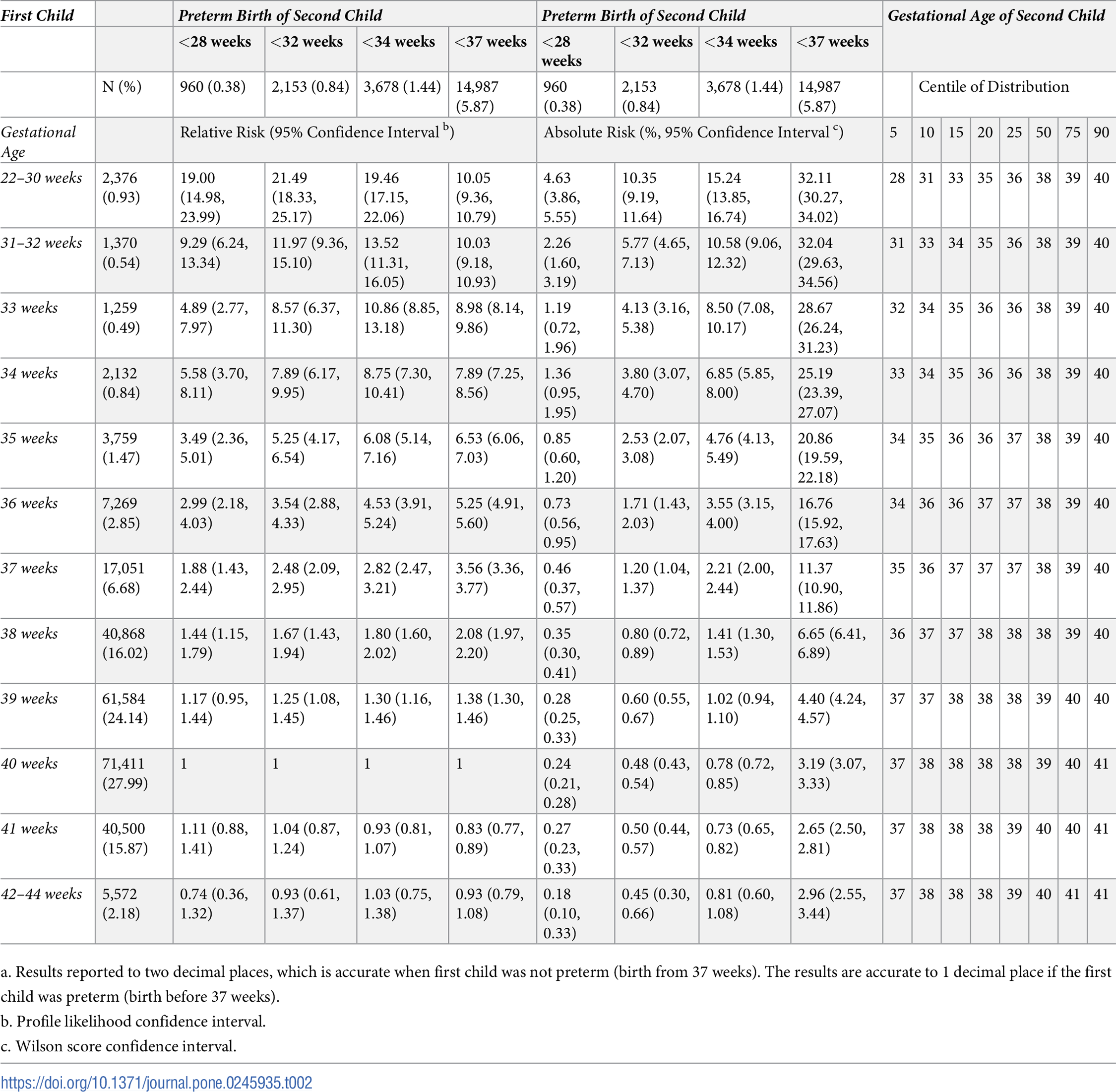What are your chances of having another preterm birth?
Risk of preterm birth can be unintentionally miscommunicated when the previous pregnancy was preterm. Unfortunately, people often confuse relative risk with absolute risk. Relative risk is high. That is, women who have a preterm birth have a relatively higher risk future preterm birth than other women who have a term birth. However, this is not what couples/women want to know. They want to know their absolute risk. Population estimates of the absolute risk is low. That is, the absolute chance of having a preterm birth is low despite previous birth experience. Our results provide an evidence-base for communicating these risks. Of course, a physician should always be consulted as these are population level estimates, but in the absence of any known pathology our results are compelling. The median gestational age at second birth is at least 38 weeks irrespective of the gestational age of the first birth, even among women who deliver their first child before 30 weeks.
Here is a table of relative and absolute risk of preterm birth of the second child by gestational age of the first child for more than a quarter of a million women from Western Australia. We have also confirmed that these results are not unique to Western Australia by replication for an independent cohort of more than half a million women in New South Wales, Australia. The references to both studies with links to free online versions of the publications can be found in the References section at the bottom of the page.
When thinking about your risk of having another preterm baby, consult your physician and this table.
References
- Pereira E, Tessema G, Gissler M, Regan AK, Pereira G (2021) Re-evaluation of gestational age as a predictor for subsequent preterm birth. PLoS ONE 16(1): e0245935.
- Pereira G, Regan AK, Wong K, Tessema GA. Gestational age as a predictor for subsequent preterm birth in New South Wales, Australia. BMC Pregnancy Childbirth 21, 607.
